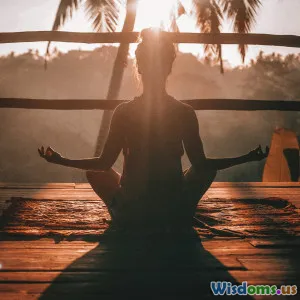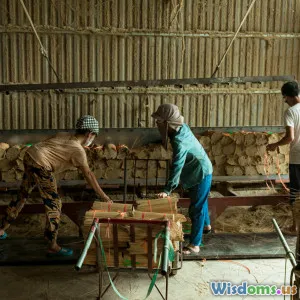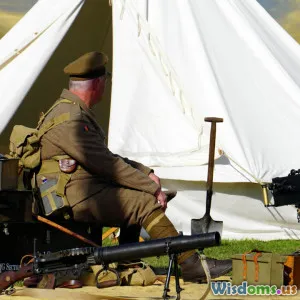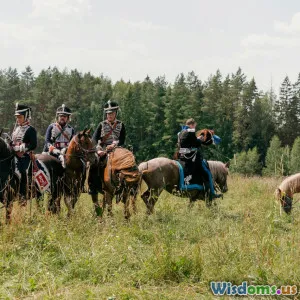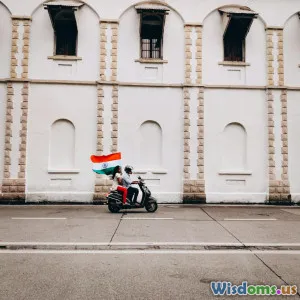
Women Leaders of the Indian Independence Movement You Never Heard Of
8 min read Unearth the stories of lesser-known women leaders who played pivotal roles in India’s independence struggle. (0 Reviews)
Women Leaders of the Indian Independence Movement You Never Heard Of
Introduction
When we think of the Indian independence movement, names like Mahatma Gandhi, Jawaharlal Nehru, and Subhas Chandra Bose dominate the conversation. Among women, iconic figures such as Sarojini Naidu and Kasturba Gandhi are widely recognized. However, tucked away in the annals of history are the courageous stories of numerous women leaders whose pivotal contributions substantially advanced India’s quest for freedom. These heroines often labored in the shadows, enduring hardships and sacrifices that match or even surpass those of their more famous counterparts.
This article delves beyond popular narratives to highlight the extraordinary lives of lesser-known women leaders who shaped the independence movement. Their stories offer fresh insights into the diverse and multi-dimensional nature of the struggle, and their legacies compel us to re-examine history through a more inclusive lens.
1. Rani Lakshmibai of Jhansi: The Warrior Queen Beyond the Legend
While Rani Lakshmibai is somewhat known due to the 1857 revolt, many overlook the nuanced role she played as one of the earliest women to reject colonial rule violently.
- Background: Born as Manikarnika Tambe in 1828, she became the Rani of Jhansi after marriage.
- Role in Revolt: When the British annexed Jhansi, she led her army against the British forces, becoming a symbol of armed resistance and inspiring many subsequent freedom fighters.
Despite her prominence, her role is often romantically mythologized rather than appreciated as a complex leader who combined military strategy and passionate nationalism.
2. Aruna Asaf Ali: The Grandmother of the Quit India Movement
Aruna Asaf Ali is often overshadowed despite being one of the most fearless organizers of the 1942 Quit India Movement.
- Notable Act: She famously hoisted the Indian National Congress flag at the Gowalia Tank Maidan in Mumbai, a daring act of rebellion that became iconic.
- Legacy: Arrested multiple times, she operated underground to keep the movement alive and served as a vital link in coordinating protests across regions.
Despite receiving the Bharat Ratna in 1997, her name is not as commonly cited during freedom struggle retrospectives.
3. Kamala Nehru: The Quiet Force Behind the Mass Movements
Kamala Nehru, wife of Jawaharlal Nehru, actively participated in non-cooperation movements and was imprisoned for her activism.
- Contribution: Organized women’s participation, mobilized grassroots support for protests, and backed Gandhi's Salt Satyagraha with zeal.
- Struggles: Despite suffering poor health, Kamala remained steadfast in her activism until her premature death in 1936.
Her work laid the foundation for women’s political engagement in pre-independent India.
4. Velu Nachiyar: Pioneering Armed Resistance in Tamil Nadu
Velu Nachiyar was the 18th century queen of Sivagangai who led one of the earliest recorded armed resistances against British forces, predating Rani Lakshmibai by decades.
- Strategic Alliance: She allied with neighboring kingdoms and foreign powers like the French to fight the British East India Company.
- Legacy: Emblematic of female leadership in military and statecraft, but largely unrecognized outside regional history circles.
5. Bhikaiji Cama: The Mother of Indian Revolutionaries
Born in 1861, Bhikaiji Cama was instrumental in garnering international attention for India’s freedom struggle.
- International Diplomacy: Raised the Indian flag at the 1907 Stuttgart Socialist International Congress, urging global support for India's independence.
- Revolutionary Leadership: Published political manifestos and channeled funds and resources to revolutionaries operating within India.
Her exile in Europe was marked by unwavering dedication to mobilizing the Indian diaspora and European allies.
6. Dr. Muthulakshmi Reddi: Feminist Visionary and Legislator
While largely remembered today for her philanthropy, Dr. Muthulakshmi Reddi was a pioneering advocate for women’s rights and social reform during the independence era.
- Political Milestones: First woman legislator in British India, she fought against child marriage and for women’s education.
- Social Reform: Led campaigns that challenged both colonial oppression and patriarchal customs.
Her holistic activism strengthened the social foundations necessary for an egalitarian free India.
7. Kamaladevi Chattopadhyay: The Architect of Cultural Nationalism
Kamaladevi’s legacy stands out for linking arts, crafts, and cultural revival with the freedom movement.
- Cultural Advocacy: Revitalized traditional handloom weaving and handicrafts, which were integral to the Swadeshi movement’s economic boycott of British goods.
- Political Role: Participated actively in the Salt March and worked to uplift marginalized communities.
Her philosophy connected cultural pride with political emancipation.
Conclusion
The Indian independence movement was a vast and multifaceted struggle that cannot be encapsulated simply by a handful of well-known names. Women leaders like Rani Lakshmibai, Aruna Asaf Ali, Kamala Nehru, and others listed here played transformative roles in political, social, and cultural arenas, often risking their lives and dignity for the nation.
Recognizing these pioneers shifts our understanding from a male-centric narrative to one rich with female leadership, courage, and innovation. Their stories remind us that freedom came through many voices and sacrifices — and it encourages a more inclusive celebration of history.
Learning about these forgotten heroines is not just about honoring the past: it deepens our appreciation for gender equality and inspires contemporary society to keep fighting injustice in all its forms.
By revisiting and amplifying their narratives, we reclaim an essential chapter of collective heritage, empowering present and future generations with stories of bravery, resilience, and visionary leadership.
“The goddess of freedom did not just bless men — she fought alongside women who dreamed of liberty.”
Rate the Post
User Reviews
Popular Posts











